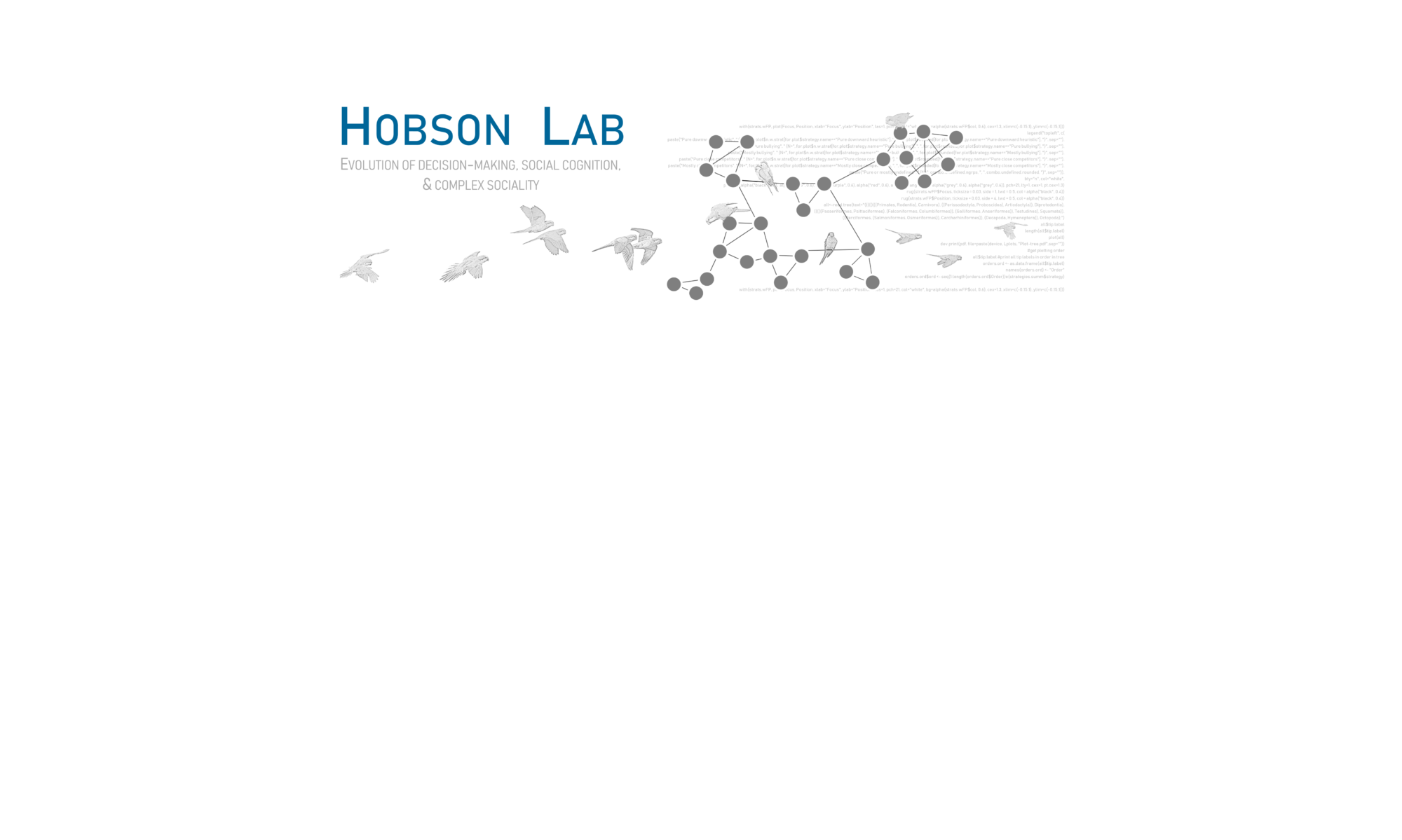Our research generally focuses on social information: what animals know about their social worlds, how they come to know it, and what they do with that information.
To address these questions, we integrate aspects of ecology and evolution to determine how the combination of sociality and cognition affect the emergence of group social structures from a combination of individual-level social actions, cognitive abilities, and decisions about future interactions. Combining this perspective into a feedback loop, and developing and applying new quantitative tools, allows us to back-infer what animals know about their social worlds by looking at how their decisions about social interactions are contingent on different kinds of social knowledge. Detecting the use of social information provides new insight into the connections between social decisions and cognitive processing, how they can be affected by ecological dynamics, and how they can lead to the evolution of complex sociality.
Liz Hobson leads the lab. Much of her previous research focused on avian sociality, where she investigated social behavior and network structures in parrots. In her current research she applies these tools to a much wider range of species, from ants to primates, and even humans, while incorporating more quantitative and computational approaches.
In the lab, we work with a variety of systems to address these questions. These are summarized below:
Monk parakeet Social dynamics: Power, Social Support, & Information
Main lab members: Annemarie van der Marel (past postdoc), Claire O’Connell, Xavier Francis, Chelsea Carminito
Main outside-lab collaborators: Grace Smith-Vidaurre
Bobwhite quail sociality & Vocalizations
Main lab members: Sanjay Prasher, Ashley Staab, Mia Wang (summer REU student from Colorado State)
Improving undergraduate data science & coding in biology classes
Main collaborators: Katie Kalafut, Brent Stoffer, Kalem Schrock, Vanessa Ferdinand, Joshua Garland, Gerry Carter, Cincinnati Zoo
Vampire bat sociality & cooperation
Main collaborators: Gerry Carter

